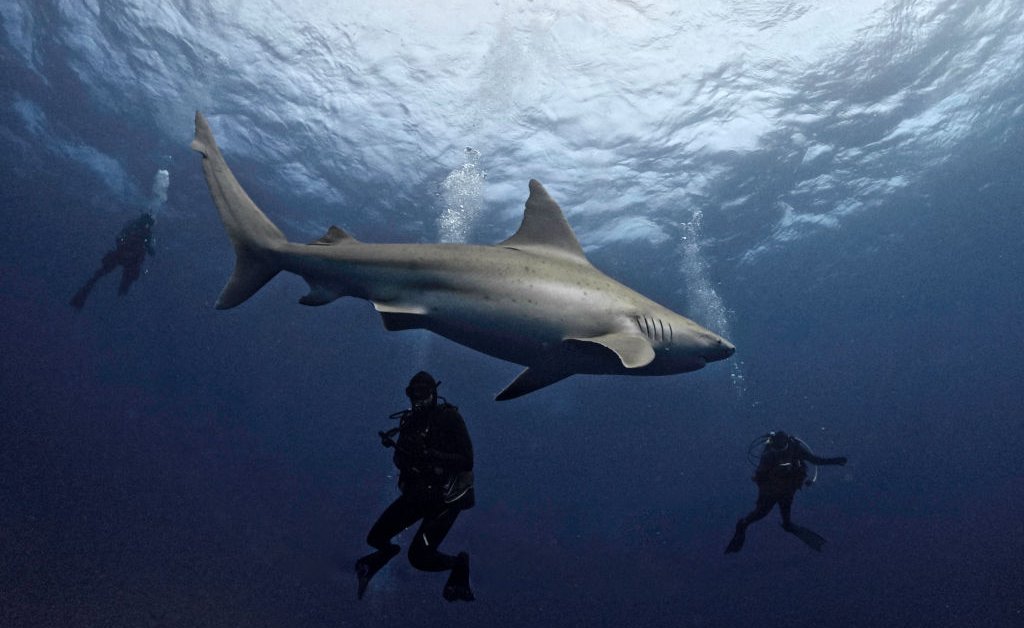Did Jaws Harm Or Help Marine Conservation? A Critical Look At Its Impact

Welcome to your ultimate source for breaking news, trending updates, and in-depth stories from around the world. Whether it's politics, technology, entertainment, sports, or lifestyle, we bring you real-time updates that keep you informed and ahead of the curve.
Our team works tirelessly to ensure you never miss a moment. From the latest developments in global events to the most talked-about topics on social media, our news platform is designed to deliver accurate and timely information, all in one place.
Stay in the know and join thousands of readers who trust us for reliable, up-to-date content. Explore our expertly curated articles and dive deeper into the stories that matter to you. Visit Best Website now and be part of the conversation. Don't miss out on the headlines that shape our world!
Table of Contents
Did Jaws Harm or Help Marine Conservation? A Critical Look at its Impact
The summer of 1975 saw the release of Steven Spielberg's Jaws, a blockbuster that terrified audiences and left a lasting cultural imprint. But beyond the cinematic thrills, the film's impact on our perception of sharks, and consequently marine conservation, remains a complex and hotly debated topic. Did Jaws ultimately harm or help the cause of protecting these magnificent creatures? The answer, as we'll explore, is nuanced.
The immediate aftermath: A wave of shark fear
The film's immediate impact was undeniably negative for shark populations. Jaws fueled a widespread and irrational fear of sharks, often referred to as "shark hysteria" or "Jaws effect." This fear led to a dramatic increase in shark killings globally. Beach closures became commonplace, and recreational shark fishing soared as people sought to eliminate what they perceived as a deadly threat. Many sharks, including numerous harmless species, were indiscriminately slaughtered. This period saw a significant decline in several shark populations worldwide, a tragic consequence of the film's portrayal of sharks as mindless killing machines.
A turning point for marine awareness?
However, the long-term narrative is less clear-cut. While Jaws initially contributed to the decimation of shark populations, some argue it inadvertently sparked a greater awareness of marine life and the need for conservation. The film's success catapulted marine ecosystems into the public consciousness, fostering discussion about ocean health and the importance of protecting its inhabitants. This increased awareness, some believe, laid the groundwork for future conservation efforts.
The rise of shark conservation:
In the decades since Jaws, there has been a significant shift in public perception and scientific understanding of sharks. Research has highlighted their crucial role in maintaining healthy ocean ecosystems, debunking the myth of the mindless killer perpetuated by the film. Organizations like the Pew Charitable Trusts and the Shark Trust have played a vital role in advocating for shark conservation, pushing for stricter fishing regulations and promoting responsible ecotourism initiatives. These efforts have helped to shift the narrative from fear to respect and appreciation for these vital marine creatures.
Beyond the box office: The legacy of Jaws
So, what is the ultimate legacy of Jaws? While undeniably contributing to a period of significant shark culls, the film's cultural impact inadvertently helped raise awareness about the ocean's fragility. The fear it initially ignited eventually paved the way for a more informed and nuanced understanding of sharks, driving the critical conservation efforts we see today.
Jaws serves as a powerful reminder of the complex relationship between media, public perception, and conservation. It highlights the importance of responsible media portrayals and the critical need for ongoing education and scientific research in shaping public opinion and driving effective conservation strategies. Today, understanding the ecological importance of sharks is key to protecting our oceans. We can learn from the past mistakes to ensure a more sustainable future for these magnificent creatures and the marine environments they inhabit.
Call to Action: Learn more about shark conservation efforts by visiting the websites of organizations like the Pew Charitable Trusts and the Shark Trust. Support responsible ecotourism and advocate for policies that protect shark populations. Together, we can ensure a future where these vital apex predators thrive.

Thank you for visiting our website, your trusted source for the latest updates and in-depth coverage on Did Jaws Harm Or Help Marine Conservation? A Critical Look At Its Impact. We're committed to keeping you informed with timely and accurate information to meet your curiosity and needs.
If you have any questions, suggestions, or feedback, we'd love to hear from you. Your insights are valuable to us and help us improve to serve you better. Feel free to reach out through our contact page.
Don't forget to bookmark our website and check back regularly for the latest headlines and trending topics. See you next time, and thank you for being part of our growing community!
Featured Posts
-
 What We Know Update On The Arrest Of Vance L Boelter Minnesota Shooting Suspect
Jun 19, 2025
What We Know Update On The Arrest Of Vance L Boelter Minnesota Shooting Suspect
Jun 19, 2025 -
 Isaac Collins Delivers Homer Double In Impressive Two Hit Showing
Jun 19, 2025
Isaac Collins Delivers Homer Double In Impressive Two Hit Showing
Jun 19, 2025 -
 North Koreas Rocket Launch Over A Dozen Missiles Fired South Korea Reports
Jun 19, 2025
North Koreas Rocket Launch Over A Dozen Missiles Fired South Korea Reports
Jun 19, 2025 -
 Wolves Transfer News Fer Lopezs Impressive Rise
Jun 19, 2025
Wolves Transfer News Fer Lopezs Impressive Rise
Jun 19, 2025 -
 Yankees Hitting Slump Deepens Three Straight Shutouts
Jun 19, 2025
Yankees Hitting Slump Deepens Three Straight Shutouts
Jun 19, 2025
